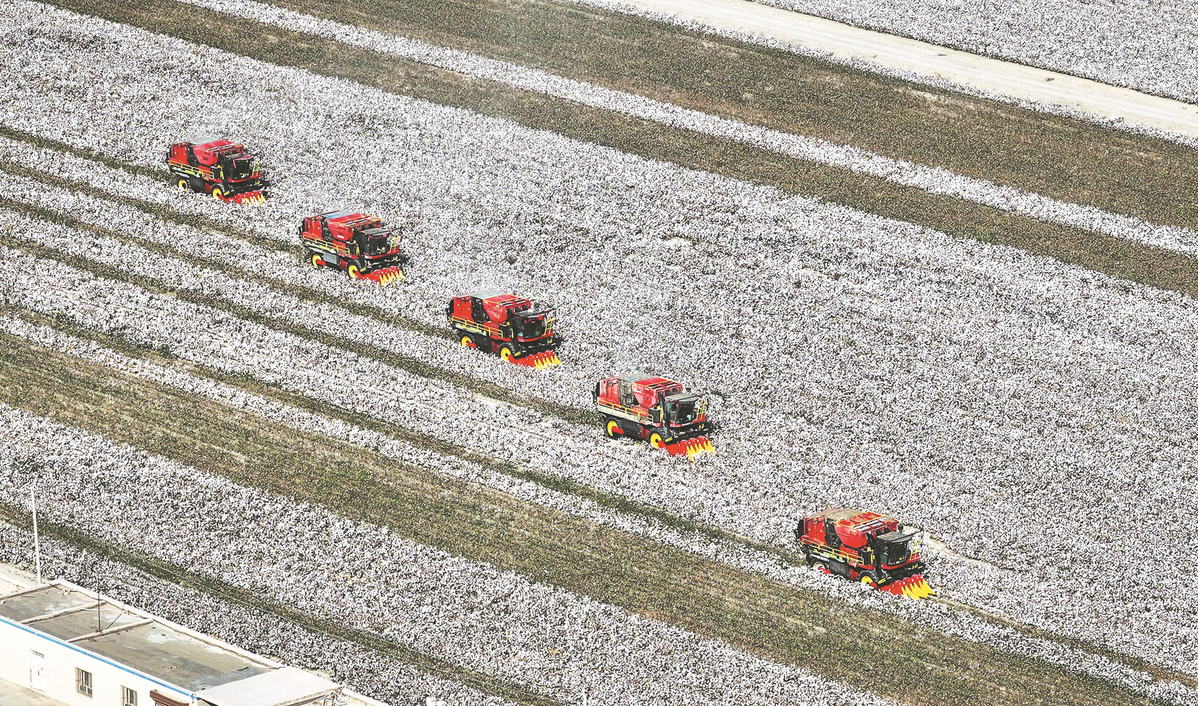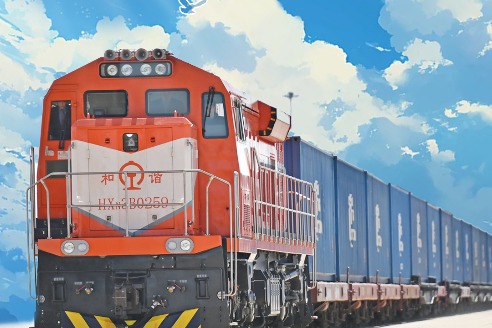Xinjiang deputy refutes forced labor allegation


A National People's Congress deputy from the Xinjiang Uygur autonomous region on Thursday refuted allegations that forced labor exists in the region's cotton industry.
During an open discussion session of the region's delegation to the top legislature's annual session, Akrem Memetmin, Party chief of Sayimaili village in southern Xinjiang's Luntai county, said villagers never need to be forced to plant cotton, because they know they can make handsome returns from growing it.
He was responding to a question about the United States' move to impose sanctions on cotton products from the region over the forced labor allegation.
The US and its allies have been cracking down on Xinjiang's cotton industry since 2020 over the allegation.
"Machinery has already replaced most manpower at different stages of cotton farming in the village," Akrem said. "How can we force machines to work?"
He said most people in the village make a living by producing cotton.
The villagers now use drones to spray pesticides, and autonomous tractors are used to sow seeds and harvest cotton. People prefer to use machinery for cotton picking because it can cut costs by 75 percent, Akrem said.
"On behalf of the ethnic Uygur villagers, I want to say something from the bottom of my heart," he said. "We bought cars and houses and improved our lives because of cotton. We don't need to be forced to make more money."
Jin Zhizhen, deputy chairman of the Xinjiang Regional Committee of the Chinese People's Political Consultative Conference, said Xinjiang has been the biggest production base for quality cotton in China since the 1990s, and its annual output has exceeded 5 million metric tons for five consecutive years.
The development of the cotton industry can boost the development of other related industries, such as textiles and agricultural machinery, which can create more job opportunities for the people, Jin said.
"By curbing the development of Xinjiang, the US aims to contain China's development. But the US won't succeed. And cotton products from Xinjiang will continue to be popular around the world," he said.
cuijia@chinadaily.com.cn
- China sees surge in return trips as holiday nears end
- Young entrepreneur offers supervision service
- Online emotional support meets growing needs
- Charting China's progress in 75 years (7)
- Projectionist brings delights of the silver screen to villagers
- Colleges call on students to stay on in education





































